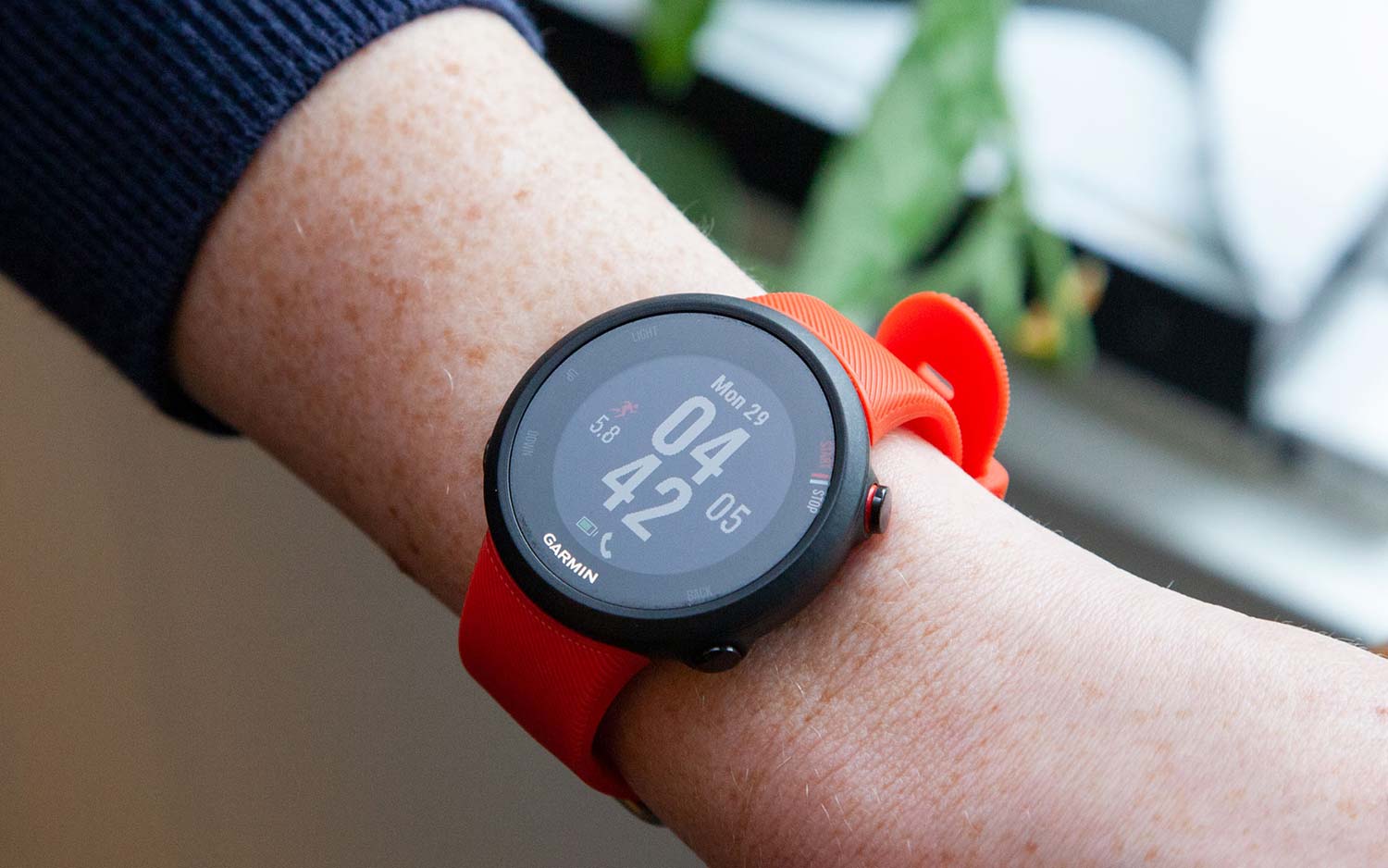Tom's Guide Verdict
For fitness newbies, the $200 Forerunner 45 has many of Garmin's top-notch fitness-tracking features in a fresh package. However, the $200 Samsung Galaxy Watch Active and the $199 Apple Watch Series 3 offer a better smartwatch experience. The $349 Garmin Forerunner 245 Music is the best GPS watch for more advanced athletes.
Pros
- +
Free Garmin Coach training programs
- +
Accurate GPS-tracking
- +
Menstrual cycle-tracking
- +
Circular display with 5-button navigation
Cons
- -
Limited features for the price
- -
Slow GPS signal
- -
No interchangeable bands
Why you can trust Tom's Guide
If you’re a step past being a "couch-to-5k" runner, chances are you don’t want to spend a fortune on a sports watch, but want something that can accurately track your pace, heart rate, and distance. Just like its predecessor, the Forerunner 35, the Garmin Forerunner 45 ($199) delivers the basics at an affordable price, only now with a much more attractive design and a color display. It has an engaging digital presentation focused as much on wellness—such as female period tracking—as speed and endurance, and also features some traditional smartwatch functionality, too.
While other $200 smartwatches offer a more well-rounded experience for fitness generalists, read our Garmin Forerunner 45 review to see why it’s one of the best sports watches and the best Garmin watch for the developing runner who wants to combine a smartwatch with the benefits of a training device and fitness tracker.
Garmin Forerunner 45: Price and availability
The Garmin Forerunner 45 costs $199, and is available in two sizes and several strap colors. The larger Garmin 45 has a 42mm case, and comes in black or a Lava Red strap. The smaller Garmin 45S has a 39mm case, and is available with a black, white or Iris-colored strap.
There is no difference in price between the 45 and the 45S, nor are there any differences in price if you choose a different color. However, unlike some of Garmin’s more expensive sports watches, you cannot easily replace the Forerunner 45’s strap.
Garmin Forerunner 45: Design
The first thing I noticed about the Forerunner 45 is its fresh face. The newest watch sports a round display, which fixes one of our biggest issues with the old, square Forerunner 35. That device looked like a 1980s wrist-computer: a slightly rounded square with ginormous bezels surrounding its grayscale screen.
The Forerunner 45 still has bezels on the thicker side, but the round display and colorful screen go a long way toward making this watch feel more like an all-day device than one exclusively for working out. I also appreciate that it comes in two sizes, a 39-millimeter case and a 42mm model. Both watches are $200. I tested the larger version, which wasn't supersized on my smaller wrist, but I would prefer the 39mm 45S for everyday wear.
Size: 1.65 x 1.65 x 0.45 inches
Weight: 1.28 ounces
GPS: Yes
Heart rate monitor: Yes
Water resistance: Yes
Smartphone notifications: Yes
Battery life (GPS): 12-14 hours
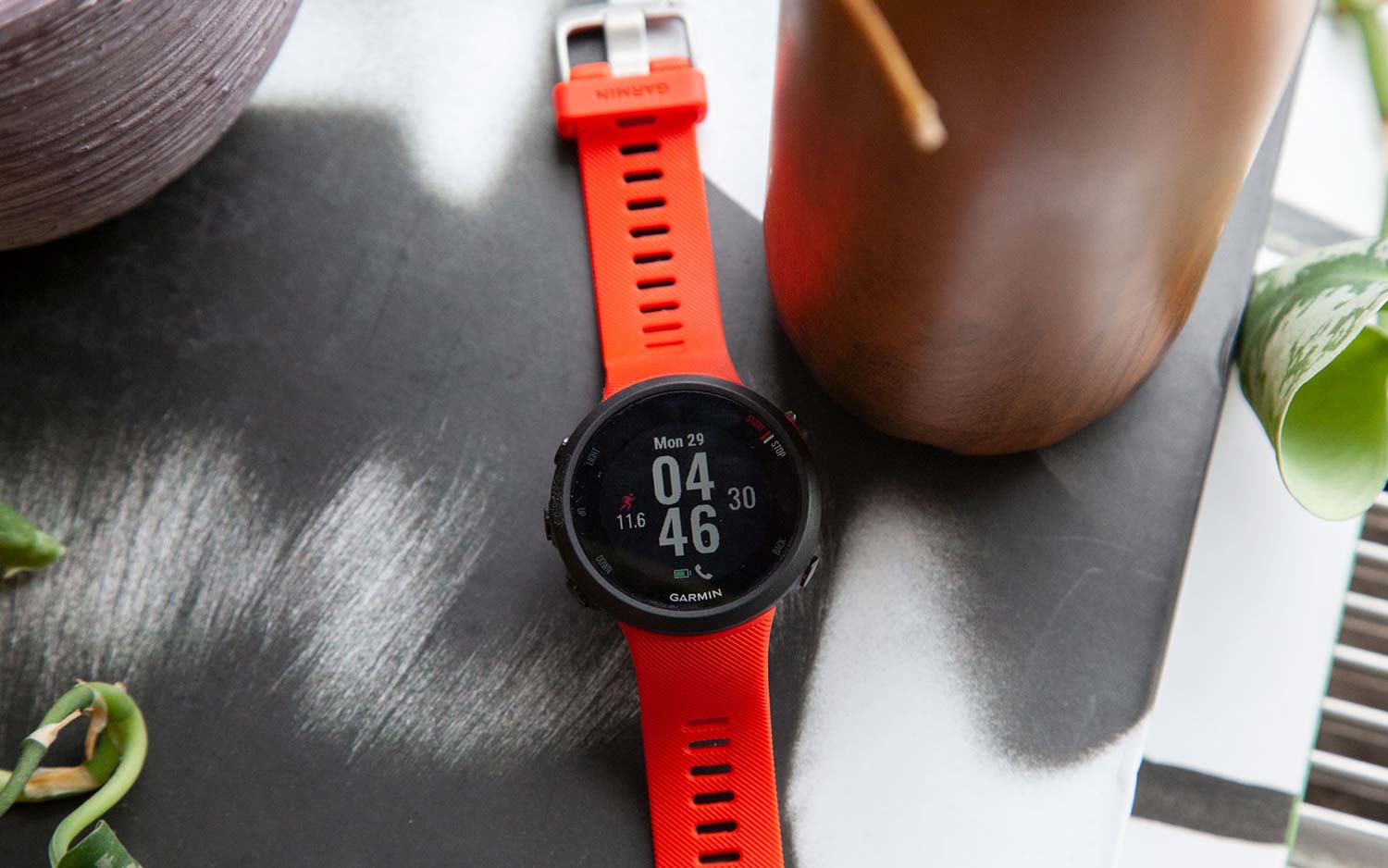
My only issue with the Forerunner 45 is its plasticky band, which often felt uncomfortable to wear while sleeping. Its silicone band, available in purple, black, white, or red, lacks a certain "business-casual crossover" appeal that has become familiar in the athletic smartwatch industry. Plus, you can't swap out the strap for another, classier option. It feels more "athlete" than "fashionista." If you want something you can wear out on the town, the Garmin Venu, while pricier, will be more to your liking.
However, if you’re looking for something that's a step up from "just a fitness smartwatch" but a step below "hyper-engaged athletic device," the Forerunner 45 hits that mark.
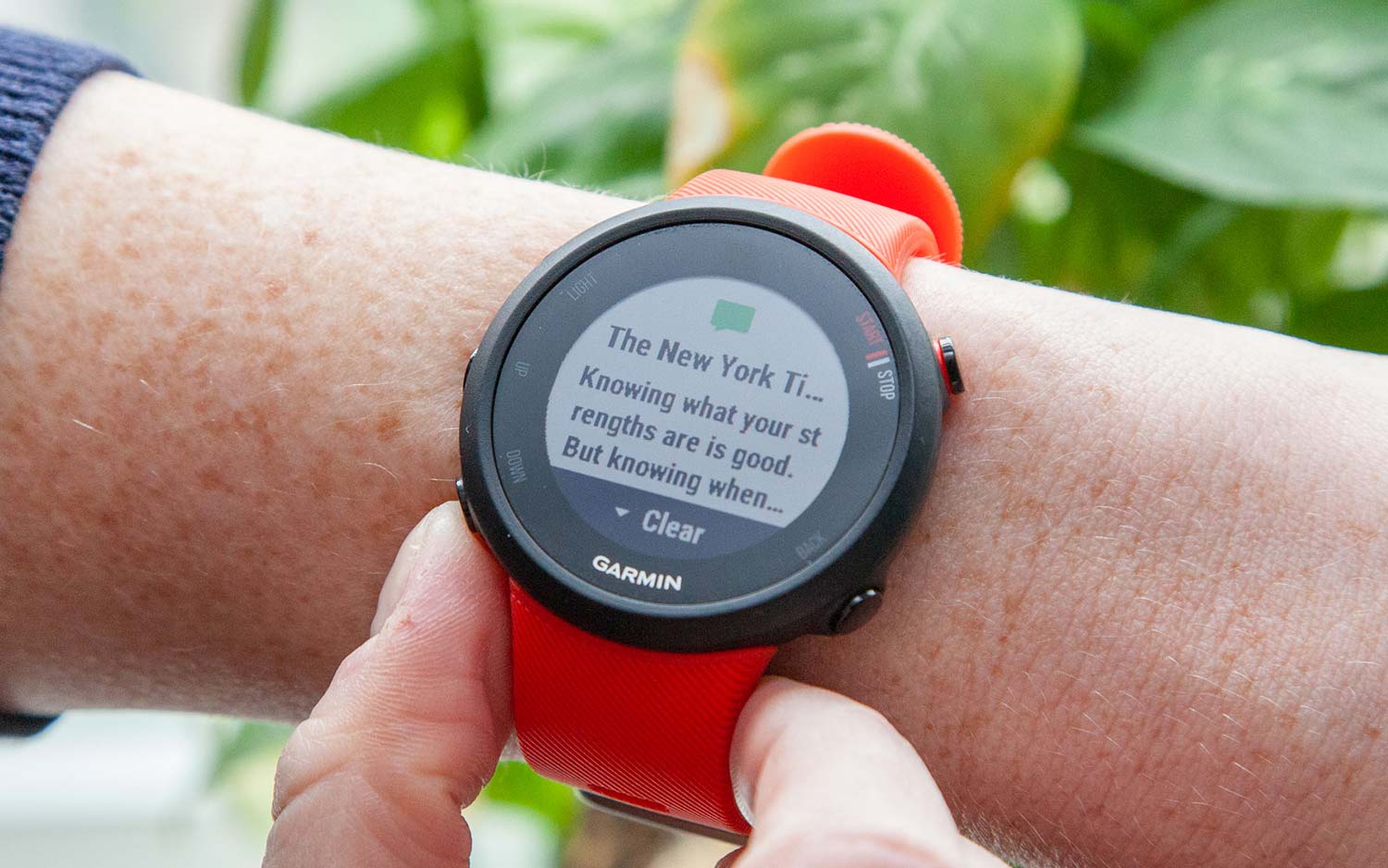
Like the rest of the watches in the Forerunner lineup, the 45 uses button-based navigation, three on the left and two on the right, instead of a touch screen, to make it easier to use while running. The five buttons are clearly labeled so you don't have to fumble around trying to find the right one with sweaty fingers on the go. A stop-start button on the top right of the case launches a workout and also stops it. You'll have to toggle up and down using the buttons on the left of the case, and a button on the top left turns on the watch's backlight for easier viewing in the early morning or evening.
Garmin Forerunner 45: Fitness features
The Forerunner 45 is a solid fitness companion, but it's not as fully featured (or as fast) as its more expensive siblings, the 245 and the 945. The Forerunner 245 Music took just seconds to lock onto a GPS signal when my colleague Mike Prospero launched a run, but the Forerunner 45, which we tested in both LA and Washington, DC, took between 15 and 30 seconds every time we started a workout.
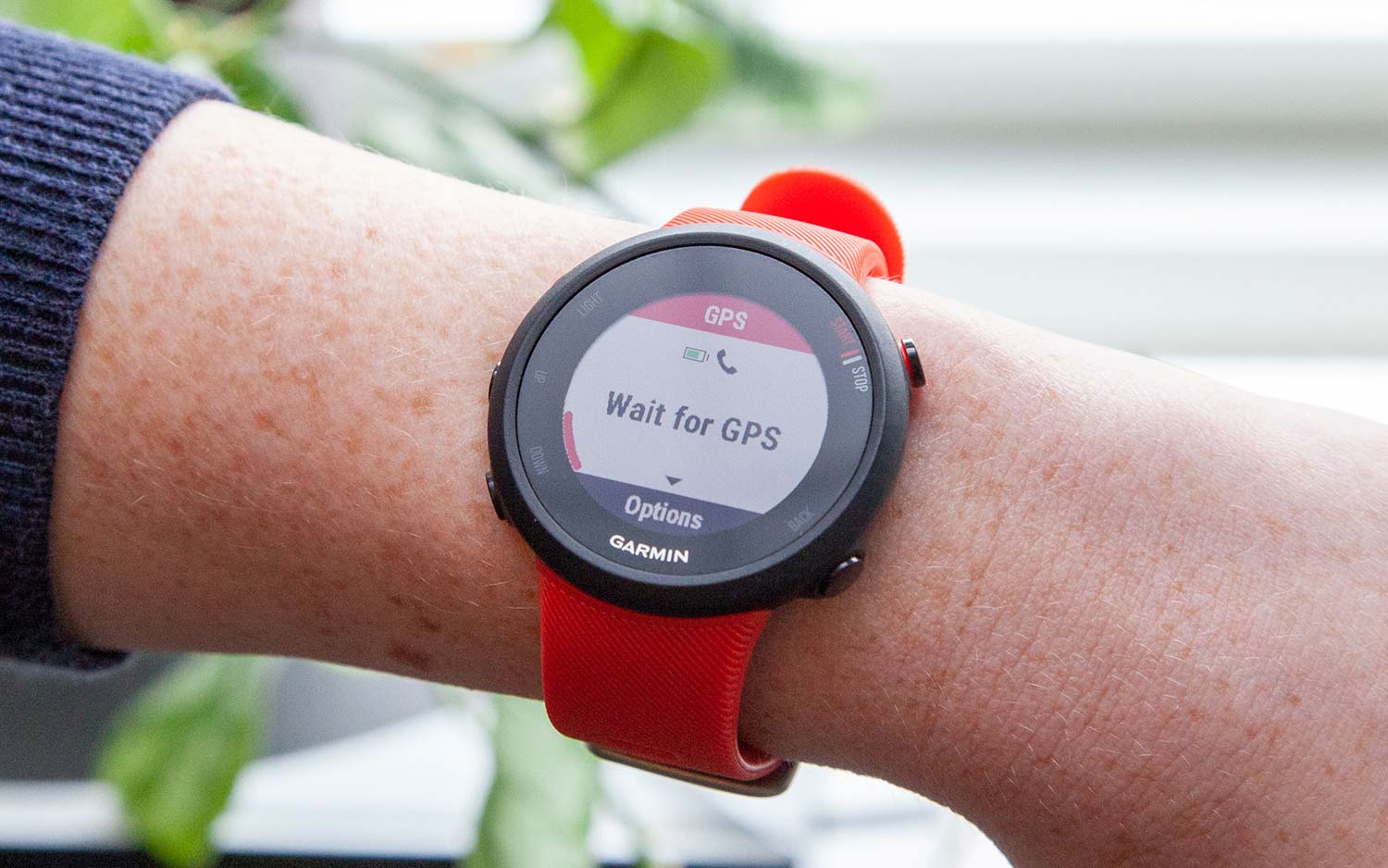
But once you get going, the 45 tracks your distance, pace, heart rate, heart rate zone, calories burned and more, though you can see only three metrics on-screen at a time. (Other smartwatches, such as the Series 3, let you view many more at a glance.) You'll have to scroll using the down button to see the rest, but I almost never did.
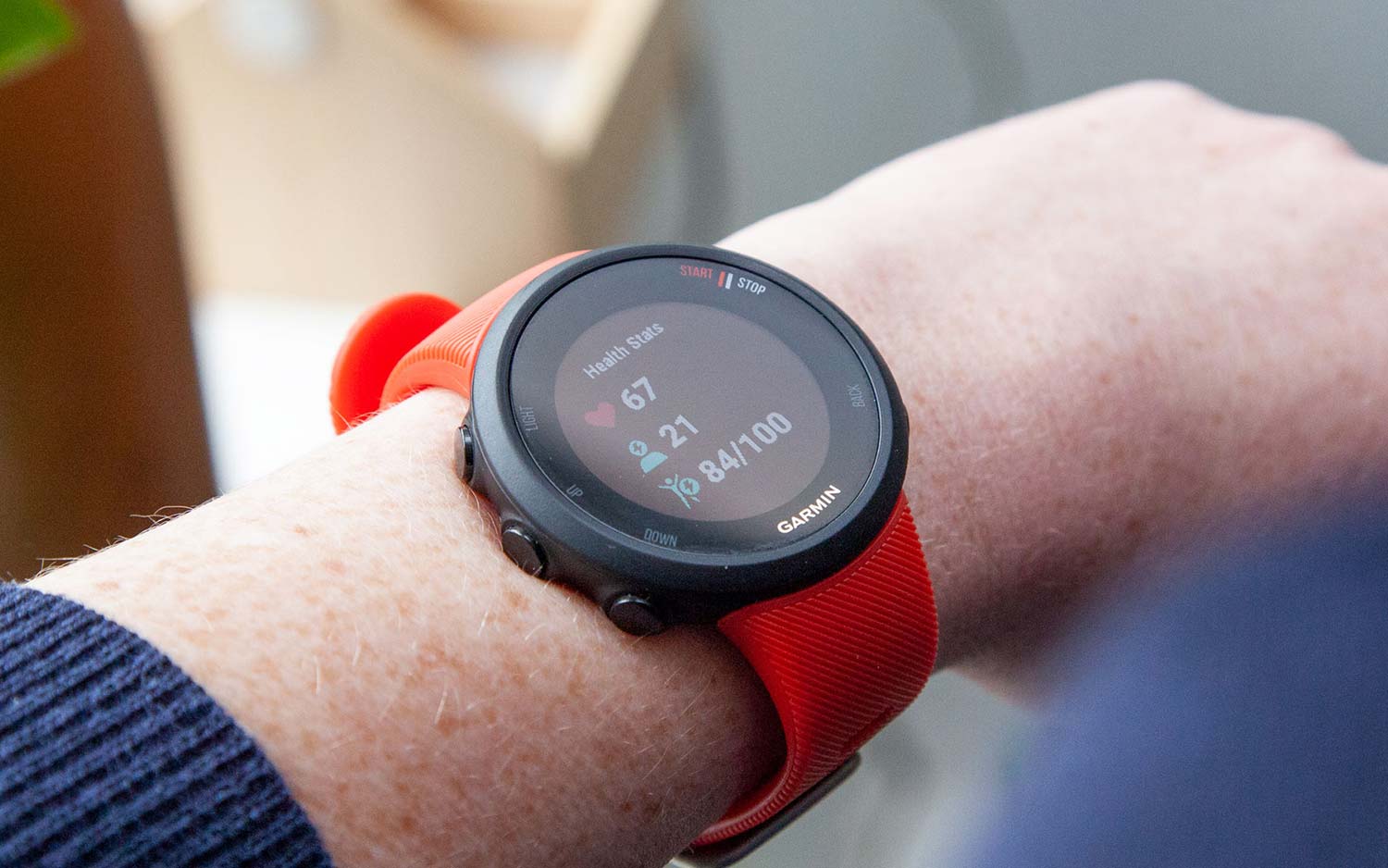
I also liked the addition of Garmin Coach, a new on-device workout program that lets you enter your current workout schedule and pace per mile to pick a running plan that will increase your endurance and speed. Unlike other similarly priced smartwatches, like the $200 Galaxy Watch Active and the Apple Watch Series 3, Garmin allows you to create custom workout plans in its app and sync them to the watch. This is where Garmin's emphasis on fitness separates the Forerunner from the pack.
On runs, the device did a more than adequate job of tracking my steps and heart rate, and provided a gentle, buzzing alert when I reached a training or running milestone. If you use one of the training regimens suggested by Garmin Connect, the watch will alert you when you’ve reached goals set for the training session. Another great feature, especially for runners-in-training like me, is the tracking of mile-splits alongside overall time.
If you take your phone with you on your runs, you can use safety features such as incident detection, which sends your real-time location to selected emergency contacts. It’s a novel enhancement.
Garmin’s, free, adaptive training plans are also very helpful for novice runners, which complements your road miles with non-running day workouts that include cycling, elliptical machines, yoga, and other cardio. The training programs are similar to Nike or Under Armour’s run trainers. There are a plethora of formats to choose from based on the length of the run for which you’re preparing or the type of fitness you’re seeking.
However, the data provided by the Forerunner 45 makes these training plans truly personal. For instance, based on my speed and heart rate during a mile sprint on the first day, the app made numerous adjustments for goals, style, and per-run length of my 10k training. I was impressed by the watch’s ability to determine my strengths and then adapt its capabilities accordingly.
Garmin Forerunner 45: Garmin app
Garmin offers a lot of health and fitness features in its Garmin Connect smartphone app for iOS and Android. But figuring out what those features are, enabling them and then syncing them to the watch is a process. For instance, if you want to enable period-tracking, you have to tap on the More menu on the bottom navigation bar, then select Health Stats, then scroll down to Menstrual Cycle. I would've never found it had I not asked a Garmin product manager where to access this new feature.
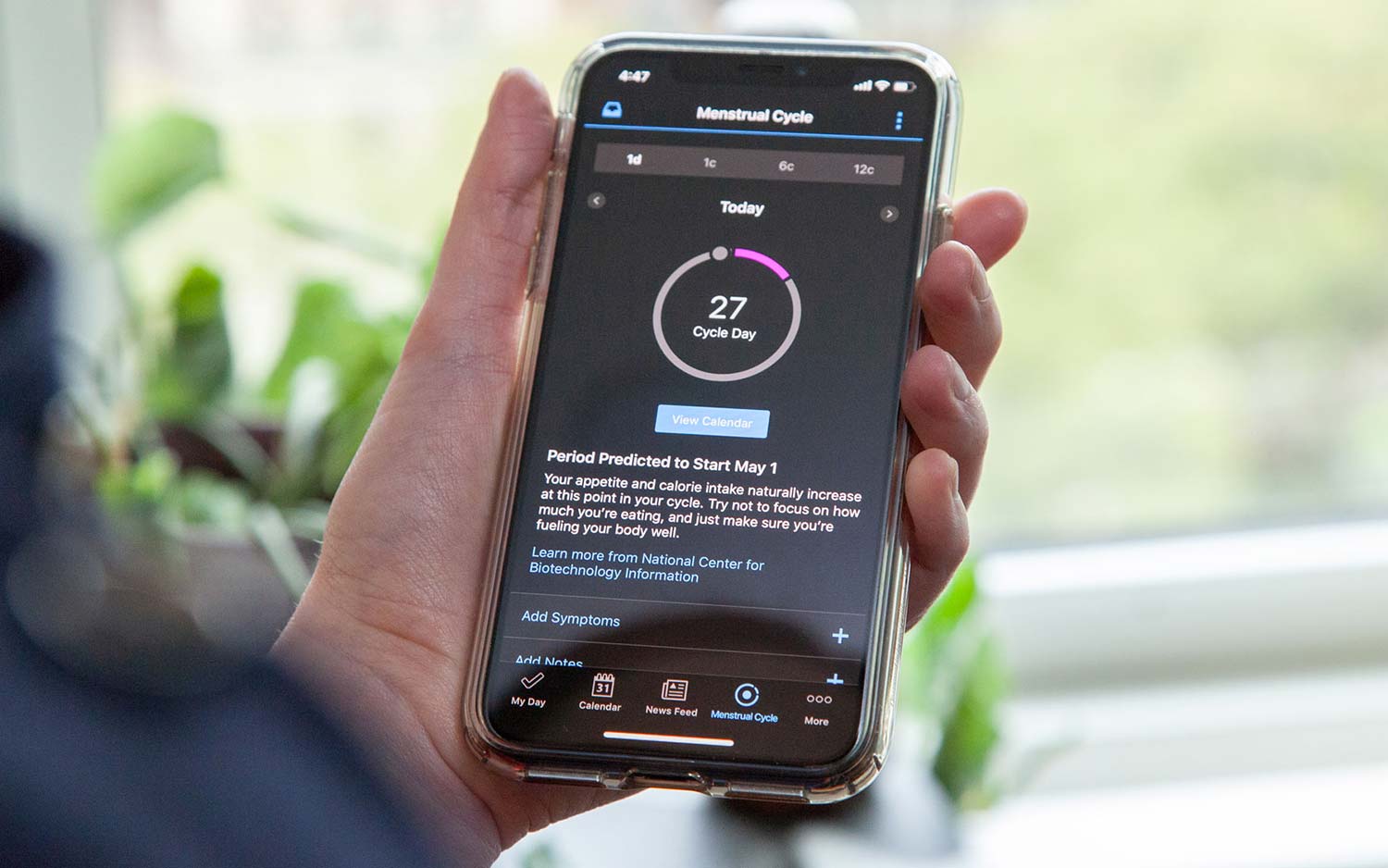
However, once I set up the new period-tracking setting, I was impressed with the level of personalization and detail Garmin enables. That extends across the app — you can create training plans based on your current running speed and goals, view incredibly detailed performance insights and set up incident detection and assistance so your emergency contacts will know if you've been in an accident. Once you know where to look, Garmin's app opens up a world of possibilities.
Garmin Forerunner 45: Battery life
Garmin says the Forerunner 45 can last 13 hours with GPS and heart rate activated, which means it won't die in the middle of a race.
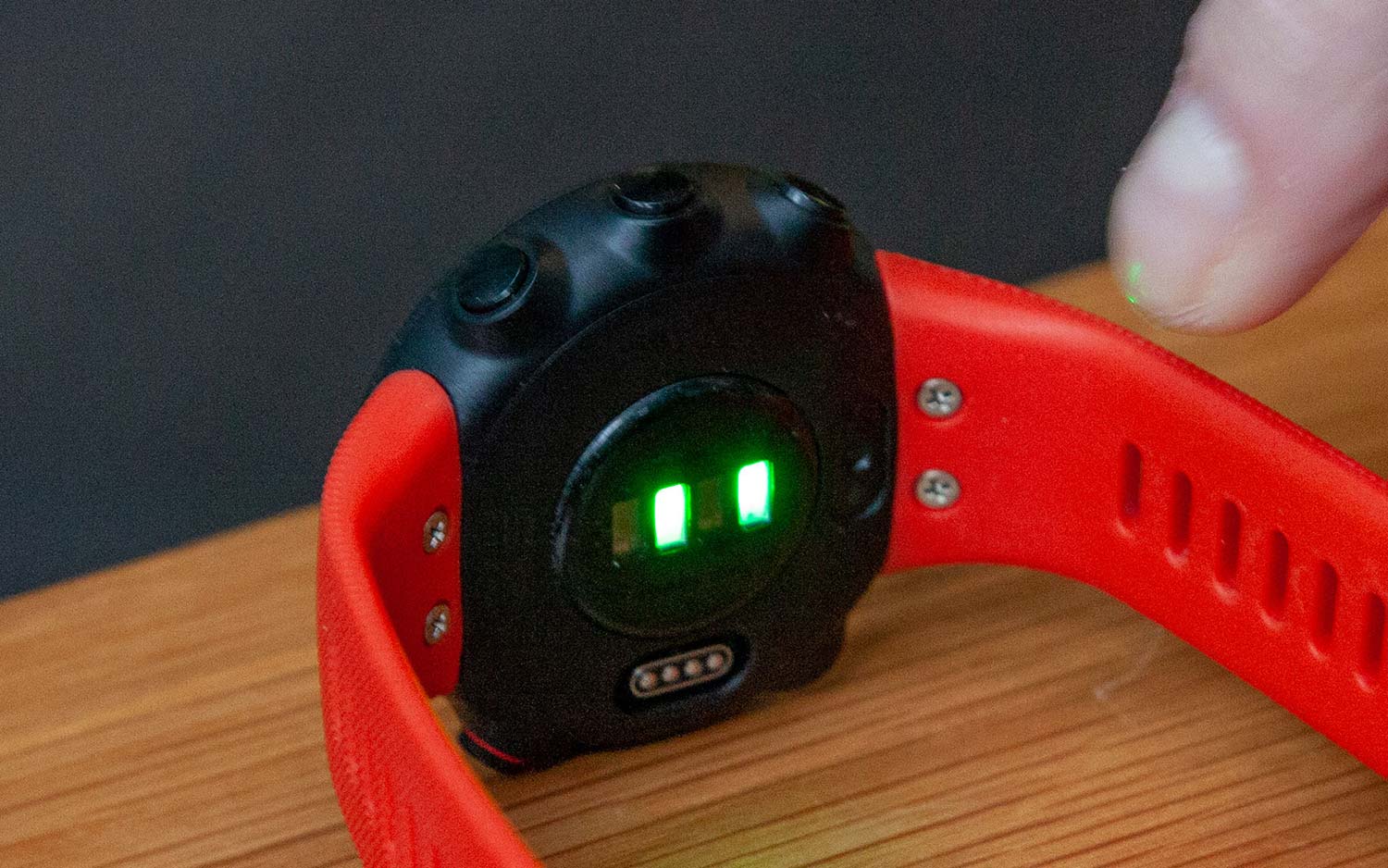
I used the watch as a, well, watch, and found that I was able to squeeze about four days of battery life on a single charge. That included daily workouts — a mix of indoor cycling and outdoor running ranging from 30-45 minutes — wearing the watch to bed to track my sleep, checking notifications from my phone and other basic activities.
The $200 Fitbit Versa 2 also offers four-day battery life, though it lacks onboard GPS. The Samsung Galaxy Watch Active 2 ($249) lasts about two and a half days on a charge, while the Apple Watch is still chugging along at 24 hours (the same as it's been since launch). However, when using GPS, both Samsung's and Apple's smartwatches have drastically shorter battery life than the Forerunner 45.
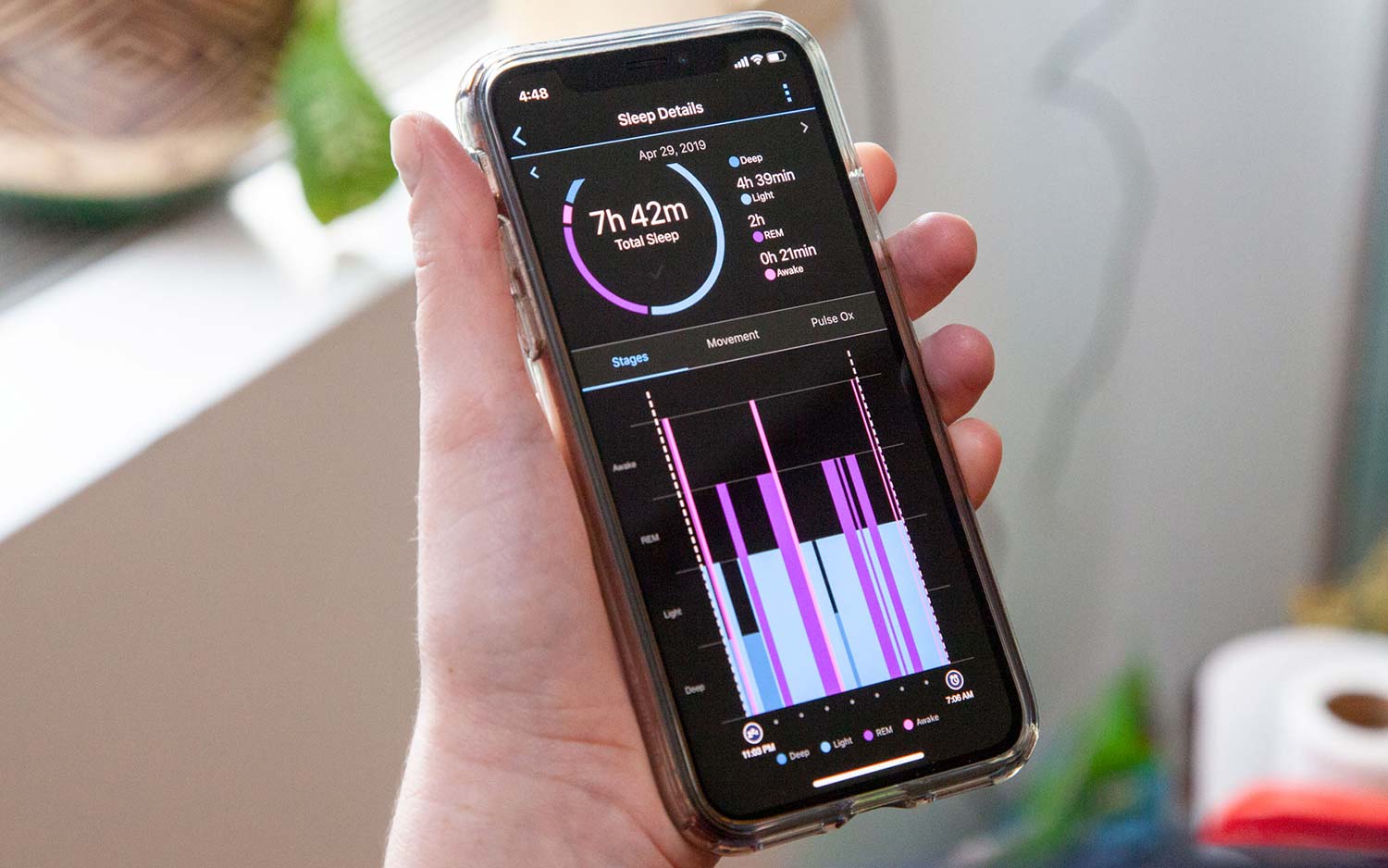
Garmin Forerunner 45: Verdict
The Garmin Forerunner 45 is a vast improvement over the outdated Forerunner 35. Built-in heart rate, GPS, a colorful screen and four-day battery life with advanced workout tracking, all for $200, is solid value.
However, if you're not a dedicated runner or cyclist, then the Forerunner 45's lack of music storage, contactless payments, and apps, which can be found in the Samsung Galaxy Watch Active 2 and the Apple Watch Series 3, both of which cost the same as the Forerunner 45. But neither of those have the endurance or training plans of the Forerunner 45.
Samsung and Apple win when it comes to a more well-rounded smartwatch experience, but if sophisticated fitness-tracking is your highest priority, the Garmin Forerunner 45 is worth a look.
Credit: Tom's Guide
- Best sports watch: Reviews of GPS watches for running
- Garmin Forerunner 235 vs. Vivoactive 3
Caitlin is a Senior editor for Gizmodo. She has also worked on Tom's Guide, Macworld, PCWorld and the Las Vegas Review-Journal. When she's not testing out the latest devices, you can find her running around the streets of Los Angeles, putting in morning miles or searching for the best tacos.
